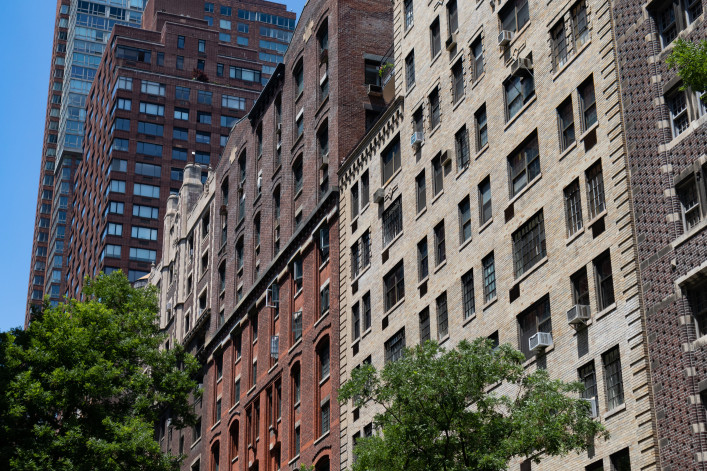A summertime interest rate cut won't fix NYC's inventory problem, experts predict
- The Federal Reserve could cut interest rates this summer if inflation stays in check
- Buyers should not expect the 30-year fixed mortgage rate to return to 3 or 4 percent
- Lower interest rates may draw more buyers, offsetting some potential inventory gains

One of the biggest problems facing NYC’s housing market is low inventory.
iStock
The Federal Reserve could cut interest rates this summer, but would-be New York City buyers shouldn’t get their hopes up for a huge increase in the number of available apartments.
The Fed has kept its benchmark interest rate paused at a 23-year high in an attempt to curb inflation, pushing up mortgage rates in the process. That’s kept many buyers—at least those without a ton of cash to burn—out of the market.
At the same time, sellers sitting on mortgage rates as low as 3 percent have held onto their units to avoid taking on a higher rate with a new purchase, according to a report from New York City Comptroller Brad Lander.
Economists expect the Fed to cut rates this summer, according to a Reuters poll, which could encourage more sellers to list their apartments. But a summer interest rate cut isn’t likely to have a huge impact on a buyer’s prospects, says Jonathan Miller, president and CEO of real estate appraisal firm Miller Samuel.
“Interest rates can’t fall low enough for inventory to flood into the market,” Miller says. “Because rates will be lower, there’s going to be an increase in demand. We're running at such a deficit that in terms of supply, I think this is going to take years for existing inventory [to catch up].”
Lower rates would increase buyer demand
NYC’s sales market slumped in 2023 as increased mortgage rates limited financing options for buyers and encouraged sellers to stick with lower rates. Those factors are still at play today, even as the 30-year fixed mortgage rate has dropped, sinking below 7 percent this week to 6.95 percent, Bankrate reported.
“There’s already more inventory coming in because rates are lower,” Miller says. “But at the same time that rates are falling and enticing more sellers to come in, there’s more buyers because rates are lower. It’s offsetting.”
The biggest problem facing NYC’s housing market is low inventory, Miller says. There were 14,740 homes available for sale in January of this year, a far cry from a 15-year peak in October 2020 of 22,153 units, according to StreetEasy data cited by the comptroller. Over the same period, the median home price has risen from $675,000 to $785,000.
When to expect a possible rate cut
The number of apartments available for sale could rise if the Fed cuts interest rates, though when that could occur depends on the pace of U.S. inflation, says Melissa Cohn, the regional vice president of William Raveis Mortgage.
“The direction of interest rates is going to be the direction of inflation,” Cohn says. “Every time we get an inflation data point, that speeds up the potential for a rate cut or slows it down.”
Consumer prices—commonly used as a measure of inflation—rose by 0.4 percent between January and February, but the greater than anticipated uptick did not change expectations that the Federal Reserve would cut interest rates this year, the Wall Street Journal reported.
Cohn expects a cut to happen this summer, probably in June or July, as the Fed doesn’t meet in August.
A disappointing year for buyers and sellers
If or when that cut does occur, New York City buyers might still be disappointed—just maybe a little less disappointed than last year, Miller says. That’s because a 3 or 4 percent 30-year fixed-rate mortgage has likely become a “historical anomaly,” Miller says.
“It's a better year in the sense that rates are coming down or have come down from 2023 highs, but it seems wildly optimistic to think that they’re going to go anywhere near where they were during the pandemic, in the neighborhood of 3 or 4 percent,” Miller says.
Buyers may see fewer bidding wars with a possible rate cut, but that might be a cold comfort when thinking about the cost of buying in NYC. Apartment prices are likely to rise even as more sellers come to market this year, Miller says.
“Housing is, in the near term, going to be more expensive than it has been over the last decade or so,” Miller says.
You Might Also Like



























